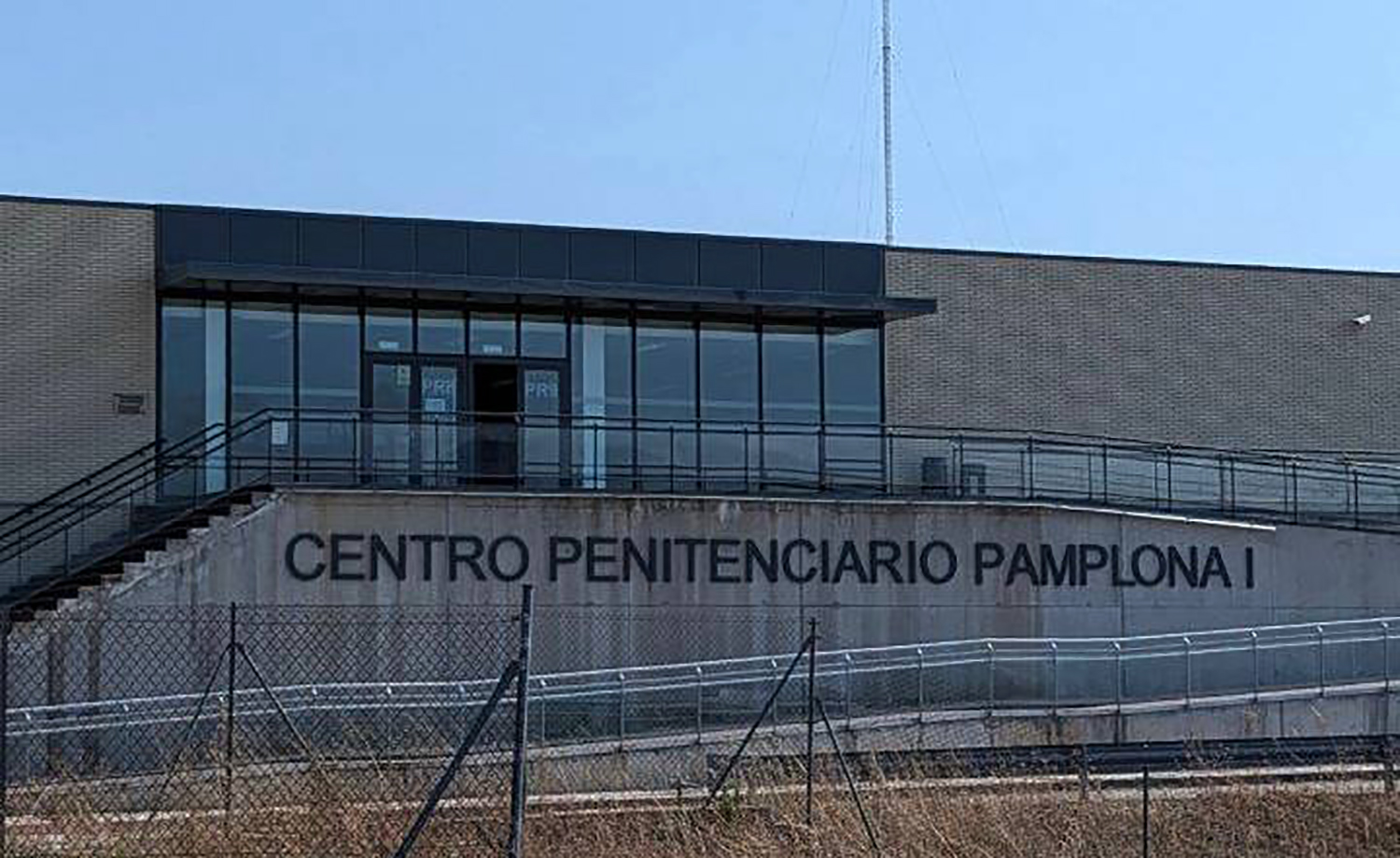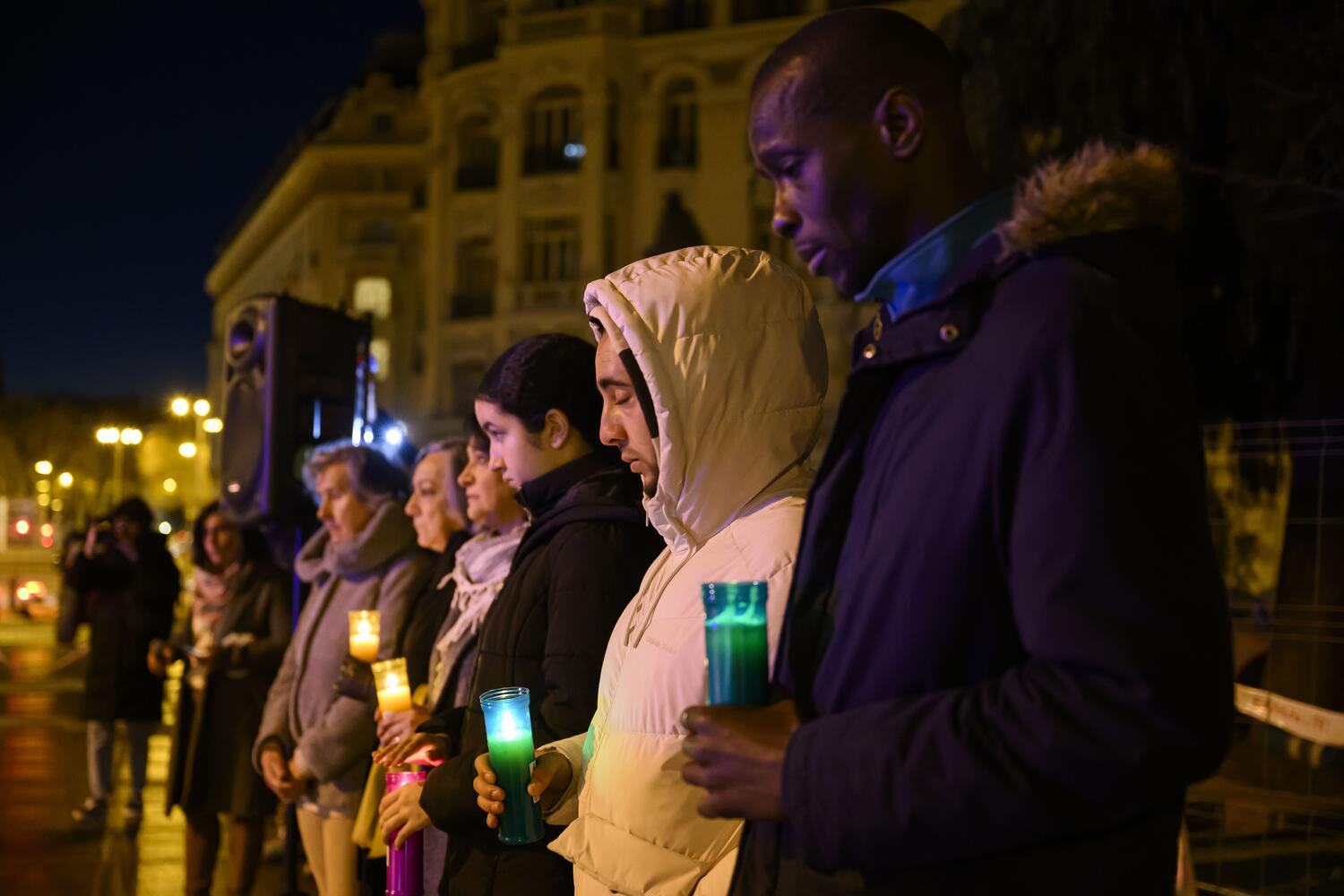"Migration is on the rise and will be one of the great characteristics of Basque society in the twenty-first century"
- Following the analysis of the migration situation in Uribe Kosta, we have talked to Arkaitz Fullaondo, a member of the Basque Immigration Observatory, about the situation of immigration in the Basque Country. As the expert explains, for years Euskal Herria has been a European "anomaly" in terms of migration, as this phenomenon has come "late" here. Why? Keep reading.

What is the migration situation in Uribe Kosta?
It should be noted that Uribe Kosta is located in the Gran Bilbao, that is, in Bizkaia, and is also one of the largest municipalities in Hego Euskal Herria: Getxo. This situation influences the dynamics of migratory flows. If we analyze the characteristics of Bizkaia in relation to migration, we will see that the most important origin of foreigners is Latin America, that is, South America and Central America. Getxo has historically been the municipality that has received the most immigrants in the region. Subsequently, we can see how this migratory flow has spread to the municipalities of the area, such as Leioa or Erandio.
Why do Latin Americans prevail in the area?
The services sector in general. Many of them have come to Getxo to work in their homes, but also in bars, among others. Moreover, the profile of the migrant that can be found is mostly the woman, and many of them have worked in households or in surveillance tasks. This has been their market niche.
It is a migratory phenomenon that dates back to the year 2000 and, since then, communities have been created that somehow function as migratory networks. When people have to go to migration, they usually go to the places they know. In this way, it can be observed that it has begun to be implemented in Greater Bilbao and that they have already contributed to the construction of a map of diversity or migratory networks.
In Getxo, for example, the Bolivians are the most...
Yes, it clearly shows this network. If we looked at where exactly they came from, we could surely see that many have come from one particular site or another. This deserves a research job.
Getxo's sociodemographic profile makes the domestic sector have a lot of work. Here are two main elements. Getxo is one of the municipalities of the CAV with the highest rate of income, two of its families work and, on many occasions, need to hire a person to ensure conciliation. On the other hand, the aging of the local population also has to do with the need for care. In this area, it is becoming increasingly necessary to recruit immigrants, provided that there is a great economic capacity to do so here.
The price of housing in Uribe Kosta is very high, both for purchase and for rental. How do people migrate here?
Here we repeat what usually happens in urban areas; it is not the same to live in Las Arenas as in Itzubaltzeta/Romo, in the centre of Leioa or in Lamiako. Much of Uribe Kosta is urban, with differences between neighborhoods.
Similarly, foreigners have somehow changed the places that have been installed. When a migratory process occurs, there are different stages that are closely related to housing. The people who come here don't rent a home immediately, but they go first to a family member's or friend's house. Then you can rent a bed in a room, then all the room and, when things go well, all the housing. Possibly, in the latter case, some of the payment rooms for the full rental will also be rented. And finally, when things go really well to that person, he'll buy the house. This means that although rental prices are high, they move in another market, the rental of rooms.
This situation is not very rare at present, because despite being here, many young people need to share their homes because it is not possible for them to pay a full rent by their own means.
Is there a great difference between the situation of Uribe Kosta and that of Euskal Herria in terms of migration?
Uribe Kosta repeats what is happening throughout Bizkaia. In Álava, people of African origin have an important weight, also in Navarre, especially those of Maghreb and sub-Saharan origin. In Gipuzkoa, on the other hand, although those from South America predominate, there are also many from Eastern Europe. In Bizkaia, most of them are from South America. However, in some neighborhoods of Bilbao, and also in other counties, there is a lot of sub-Saharan. It has an impact on the labour market in the field. For example, the Senegalese are in Ondarroa and Lekeitio, as they are fishing areas. Latin Americans work, as has been said, in the market of services, care or cleaning houses, but also in bars and fruit shops, among others. Why? By language.
People of African origin, Maghreb and sub-Saharan Africa, have more problems finding work and have a serious unemployment problem, around 40% have no work, their poverty rate is very high.
On the other hand, those from Regional Europe, the Romanians and the men and women from these areas are of a different profile; women do a lot of care needs, but men work in the industry and in the works, manuals but who need training. Why? Because in their territories they have that qualification.
In short, what I mean is that labour markets differentiate the difference from one side to the other. However, most are characterized by working in precariousness.
Why is the unemployment rate higher among Africans?
On the one hand, they are stigmatized and discriminated against, especially among the Maghreb. These come from very poor areas and qualifications are usually not high. In Vitoria-Gasteiz there is a lot because they went to work in the construction with the increase of housing, and there they have rooted. Nowadays, they have problems of discrimination and have difficulties in accessing the labor market, as they do not meet the required profiles.
Sub-Saharans, on the other hand, have a problem in getting their papers. Many are in an irregular situation and find it difficult for them to get the papers they need. In addition, there are some economic networks, such as those dedicated to street sales. They go into survival dynamics and find it hard for them to get another job.
What is the condition for obtaining papers?
The main way to get papers is to get a job. Thus, those who have more employability in the labor market will have easier access to papers, which are Latin American by their language. They also have community networks. The phenomenon of international migration began in our country 20 years ago, which has caused families to unite during these years, and many have married here. But employment is one of the main ways to get papers. It also has a great deal to say about how they arrive in the Spanish state.
Another element is the acquisition of nationality. Two years for those in South America can get citizenship here, although that is not an automatic process. Africans, on the other hand, have begun to ask for citizenship 10 years later.
Migrants, who are nationals, can make it easier for their families to obtain papers, provided that this can prove that they can keep them economically.
There are different processes, but most of the problems are established by law.
Papers and work, it's an endless wheel...
Yes, the will itself is the first step towards hiring a migrant person. In the economic recovery, people were needed to work. Now, on the other hand, there are sectors where people are still needed, but in others they are not. So, everything is conditioned by the economy. Here migratory flows are very clear. When did the upward migration begin? When the economy went up, and when did it go down? The moment the economy has gone down.
When did the migratory phenomenon grow here?
The migration dynamics of the Basque Country must be framed within the logic of the Spanish State. Those who come here go to Spain, without any difference. Thus, between 2000 and 2008 the economy of the Spanish State grew very fast, people were needed to work, and therefore, in 8 years, the State welcomed almost 5,000,000 immigrants. Until then, Europe was the territory that had least welcomed migrants and, in a short time, was among the countries that received the most immigrants.
At the time of the crisis, this flow stopped and the situation was balanced. Now, on the other hand, the economy, albeit gradually, has started to grow and migration has increased again. During this time, other phenomena such as the refugee crisis have taken place. However, statistically few people have arrived from areas such as Ceuta and Melilla. Most of them come from Barajas (Madrid), the airport, but also from the bus, which heads to Madrid.
However, in the Basque Country, migration began late. Why?
At the time of the economic recovery, between 2000 and 2008, in the Spanish State migration began very quickly, but here very little. The labour market here is more specialized and smaller than Spanish, and informal work is less important than in other territories. There is not much field here, except in the south of Álava and Navarra. Work is also very regulated here; the unions do not accept work without a contract and they are strong here. Thus, it was not possible to work here in a factory without a contract; it could be in unfavorable conditions, yes, but without a contract.
Here began migration slowly until the crisis. At that time, those who were in Spain began to come, because the local economy was still strong, until 2012. In that year, the crisis hit the local economy, and here too, the migration flow was balanced. Now, on the other hand, with the economic boom, migrant people have come back and the dynamics are much greater than in other years.
What consequences can external migration have in our country?
The Basque Country was, until recently, an anomaly in Europe. Our economy was going well, it was strong, and yet we didn't have many migrations until now. The consequence is that diversity has increased, which has occasionally generated tensions and problems for coexistence nowhere. Current society is the result of this migratory process. And that will have other consequences, and we will have to learn how to manage them so that we don't give social inequalities. However, we must not address this challenge from a dramatic point of view in order to build a just, cohesive and equal society.
Are the institutions taking steps along the way to achieve this?
Yes, they do things, although others have not done well. Some political parties use the issue to derive their own benefits; the IGR (Income Guarantee Income) up and down, different aspects related to xenophobia... However, I think it is working, although it could be done better. This should not be considered problematic, it should not be seen as a problem. It is simply a reality that needs to be managed.
Invasion, colonization ... There are a lot of rumors on the street. Is it for so much?
The impact is political and largely influenced by the media. For example, when we go to an outpatient clinic we will find 20 people in the waiting room, of which 2 are immigrants. Surely we will focus on the latter, not on the others, because they are “different”. Another thing is that they concentrate, divided into groups, but we do too. Different clothes, different cultural patterns, different social classes...
There are many elements to have those sensations. A part of society has always sought a brow head to justify problems in a given situation and blame someone.
But what you have to say is that here is a normal migration process. Historically, we've had fewer migrants than we have for society and the economic model that we've had. Now, on the other hand, that has changed, migration is increasing and that is going to be one of the main features of Basque society in the Basque Country of the twenty-first century.
Aljeriatik datoz Mohamed eta Said [izenak asmatuak dira], herri beretik. “Txiki-txikitatik ezagutzen dugu elkar, eskolatik”. Ibilbide ezberdinak egin arren, egun, elkarrekin bizi dira Donostian, kale egoeran. Manteoko etxoletan bizi ziren, joan den astean Poliziak... [+]
Kritika artean abiatu dira Gasteizko Arana klinika zena Nazioarteko Babes Harrera Zentro bilakatzeko obrak. Ez auzokideak, ez errefuxiatuekin lan egiten duten gobernuz kanpoko erakundeak, ez PSEz bestelako alderdi politikoak ez daude ados proiektuarekin: makrozentroen ordez,... [+]
Europako Batzordeak lege-proiektu berri bat aurkeztu du asteartean. Dokumenturik gabeko pertsonak jatorrizko herrialdeetara edo igarotze-herrialdeetara deportatzeko prozesua areagotzea eta azkartzea helburua du.
Harrera-herri euskaldun nola izan gaitezkeen galdetu zion Leire Amenabarrek bere buruari eta parean zituenei iaz, Gasteizen, harrera-hizkuntzari buruzko jardunaldietan, eta galdera horrexetan sakontzeko elkartu gara berarekin hilabete batzuk geroago. Amenabarrek argi du... [+]
“Bi pertsona mota daude munduan: euskaldunak, batetik, eta euskaldunak izan nahiko luketenak, bestetik”. Gaztea zela, Mary Kim Laragan-Urangak maiz entzuten omen zuen horrelako zerbait, Idahon (AEBak), hain zuzen. Ameriketan jaio, hazi, hezi eta bizi izandakoak 70... [+]
Aurrekoan, ustezko ezkertiar bati entzun nion esaten Euskal Herrian dagoeneko populazioaren %20 atzerritarra zela. Eta horrek euskal nortasuna, hizkuntza eta kultura arriskuan jartzen zituela. Azpimarratzen zuen migrazio masifikatua zela arazoa, masifikazioak zailtzen baitu... [+]
Hamasei migrante atxilotu zituzten otsailaren 6an Baionan, etorkinen eskubideen aldeko elkarteek salatu dutenez. Dirudienez, Baionako prokuradoreak eman zuen agindua. Operazioa autobus geltokiaren eta Pausa harrera zentroaren artean gauzatu zuen poliziak, tartean, adingabekoak... [+]





















